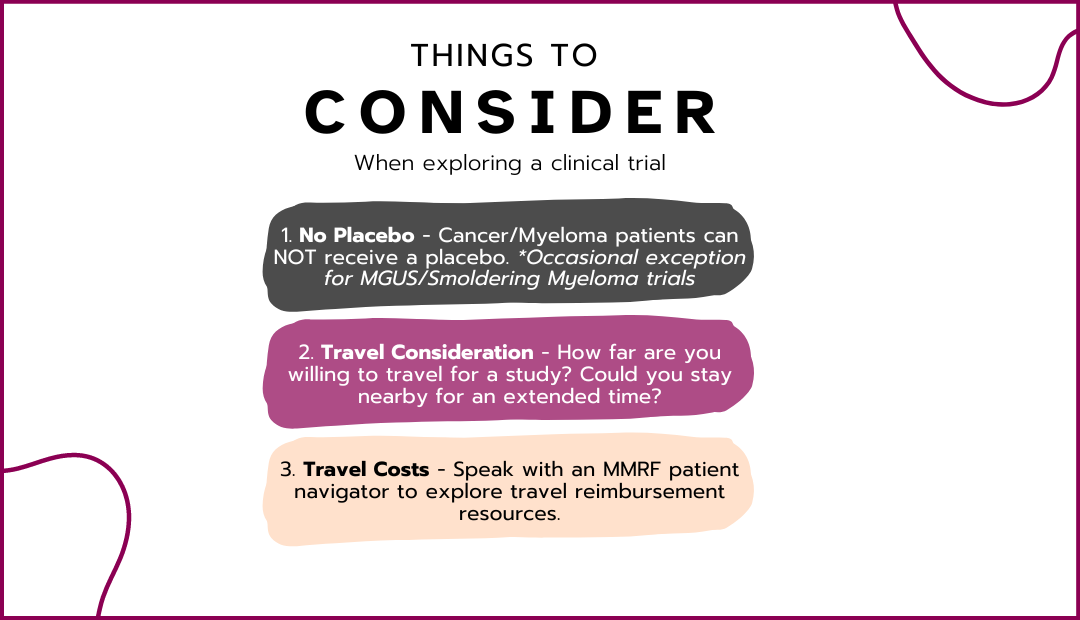Combination Treatment Therapy Approaches for the Treatment of High-Risk Multiple Myeloma, REACH Trial
NCT05497804
Age 18 - 80
Sex Both
Phase Phase 2
Third Opinion Trial Synopsis
Doctors are testing if a mix of medicine called chemotherapy can help people with a serious type of cancer called multiple myeloma. The medicine works by stopping the cancer cells from growing and spreading in different ways. The doctors want to see if this mix of medicine can improve blood tests in patients who still have a little bit of cancer after their first treatment. They call this "minimal residual disease". This test will help the doctors understand if the mix of medicine is helpful for these patients.
Doctors are testing if a mix of medicine called chemotherapy can help people with a serious type of cancer called multiple myeloma. The medicine works by stopping the cancer cells from growing and spreading in different ways. The doctors want to see if this mix of medicine can improve blood tests in patients who still have a little bit of cancer after their first treatment. They call this "minimal residual disease". This test will help the doctors understand if the mix of medicine is helpful for these patients.
Third Opinion AI Generated Synopsis
Trial Summary
This phase II trial test whether combination chemotherapy works to improve blood test results in patients with high-risk multiple myeloma. Chemotherapy drugs, such as carfilzomib, daratumumab, lenalidomide, and dexamethasone, work in different ways to stop the growth of cancer cells, either by killing the cells, by stopping them from dividing, or by stopping them from spreading. This trial may help determine if patients who have a small amount of cancer left after the initial treatment, called minimal residual disease, will benefit from the drug combination.
This phase II trial test whether combination chemotherapy works to improve blood test results in patients with high-risk multiple myeloma. Chemotherapy drugs, such as carfilzomib, daratumumab, lenalidomide, and dexamethasone, work in different ways to stop the growth of cancer cells, either by killing the cells, by stopping them from dividing, or by stopping them from spreading. This trial may help determine if patients who have a small amount of cancer left after the initial treatment, called minimal residual disease, will benefit from the drug combination.
from ClinicalTrials.gov
Locations & Contact
Fill out the form and to let the Multiple Myeloma Research Foundation know you are interested in this trial.
Contacts:

